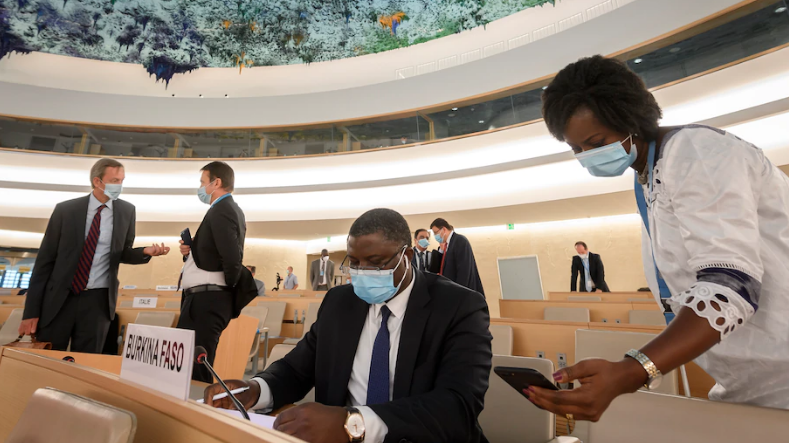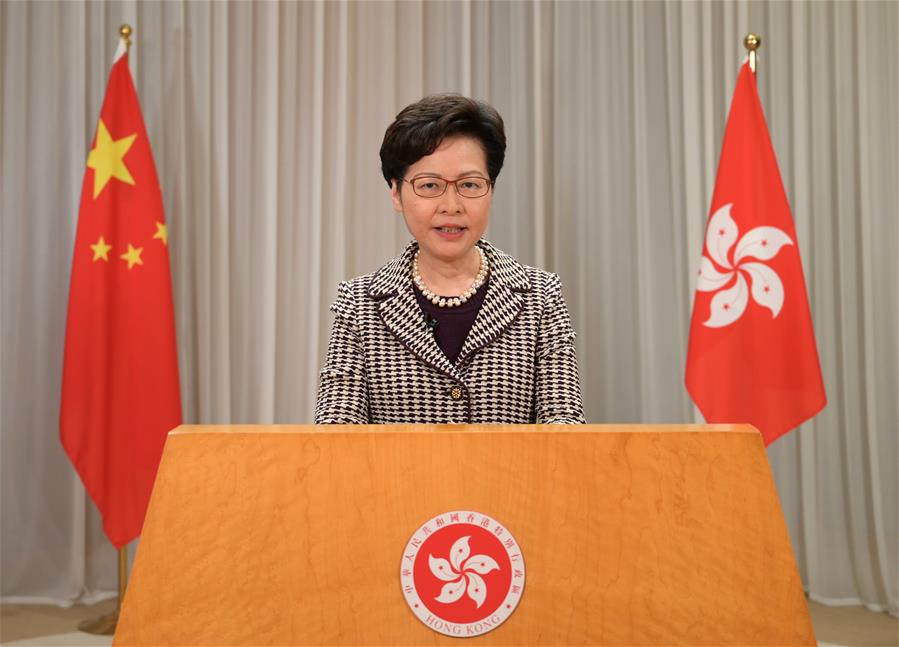
Delegates prior to the vote at the UN Human Rights Council in Geneva, Switzerland, June 19, 2020. /AP
Delegates prior to the vote at the UN Human Rights Council in Geneva, Switzerland, June 19, 2020. /AP
Editor's note: Bradley Blankenship is a Prague-based American journalist, political analyst and freelance reporter. He has been featured on Press TV, Russia Today and Radio Sputnik. The article reflects the author's opinions, not necessarily the views of CGTN.
On June 30, the United Nations Human Rights Council (UNHRC) began its 44th regular session to discuss human rights at a time that could not be more pertinent as the COVID-19 pandemic exposes vast inequalities across the globe.
Millions of the most vulnerable people are facing mounting problems - from poor access to adequate healthcare, food insecurity, joblessness and continuing war in the midst of a global crisis.
The time for an open discussion on human rights, and particularly how they should be broadened in scope, could not be more opportune and should not be wasted for political opportunism.
As High Commissioner for Human Rights Michelle Bachelet said, the pandemic has stoked discriminatory fervor against minorities who are stigmatized as somehow being attached to the virus.
Minority communities across the world have suffered violence and unfair discrimination. On top of this, there are also systemic racial disparities concerning COVID-19 that are affecting health outcomes.
"Members of racial and ethnic minorities and indigenous people are both more likely to die of COVID-19 and are hit the hardest by its socioeconomic consequences," Bachelet said, noting a special concern for people of African descent who are discriminated against and put on the front lines for so-called essential jobs.
Even further, according to the commissioner, tens of millions face falling into extreme poverty as well as a looming, global food crisis which stresses the need for multilateral institutions.
All of these issues are of critical importance to the world as ongoing anti-racism and economic justice protests grip many countries. For this reason, multilateral institutions and approaches to dealing with these issues are of the utmost importance.
Fostering a global pluralism in discussion allows for an improved discussion of human rights and exactly what the term constitutes. It is also the only way to break away from orthodoxy that proves unsuccessful in practice - something now exposed very clearly by COVID-19.
The world has learned, in a harsh lesson, that the current structure of the global economy is deeply incompatible with human need. The world must address global inequality as a priority.
Unfortunately, the conversation in this direction is being careened by an actor that itself doesn't wish to engage in such discussions, namely the United States.
The U.S. - led by an administration that has pulled away from the UNHRC and sanctioned the International Criminal Court - has led the charge in detracting the opportunity to discuss human rights, specifically targeting China and other nations in its crosshairs.
On June 30, Hong Kong Special Administrative Region (HKSAR)'s Chief Executive Carrie Lam spoke in a video message before the UNHRC, addressing key concerns of the national security law for Hong Kong and reiterating the position of China's central government in defending its autonomy and security.

HKSAR Chief Executive Carrie Lam addresses the UN Human Rights Council via video message, June 30, 2020. /Xinhua
HKSAR Chief Executive Carrie Lam addresses the UN Human Rights Council via video message, June 30, 2020. /Xinhua
Lam described the acts of violence in Hong Kong as being escalated by external forces and terroristic in nature - the former being widely publicized even in American media outlets and the latter having been confirmed by security officials in Hong Kong.
The veracity of Lam's description of threats to Chinese national security underscores the exact reason for the law in the first place - the preservation of "One Country, Two Systems." Without the preservation of national security, foreign actors could potentially interfere in the two systems, as they are doing, to make them two countries - something that no one agreed to.
Still, some human rights organizations backed by Western countries have continued to apply pressure on the UNHRC to act against China, citing the so-called "draconian" national security law, as a "matter of priority."
Incidentally, on the same day that Lam presented this justification for the national security law, U.S. Secretary of State Mike Pompeo spoke before the United Nations Security Council (UNSC) to promote an extension of an arms embargo on Iran.
However, as the U.S. walks away from the Joint Comprehensive Plan of Action (JCPOA, or the so-called Iran Deal), their legal grounds to enforce snapback measures against Iran are null and yet another example of pathological unilateralism.
Some other recent examples include the U.S.-imposed sanctions against Iran, Venezuela and the new round of murderous sanctions against Syria. Its close allies, including European countries, are also facing trade spats launched by Washington.
Such bullyish behavior should not be tolerated as it endangers the lives of the most vulnerable and upsets the economic well-being of many more especially under the context of the global crisis. This is not an abstract issue - the effects are being seen right now at a lightning speed. The UNHRC must continue its commitment to address human rights in the context of COVID-19, especially wealth and racial inequality.
These issues can be the basis of a fruitful relationship between China and the UNHRC as China's rapid economic growth has lifted hundreds of millions of people out of poverty.
From this perspective, China has much to contribute to the current discussion as the world understands clearly that economic rights are indeed human rights.
(If you want to contribute and have specific expertise, please contact us at opinions@cgtn.com.)